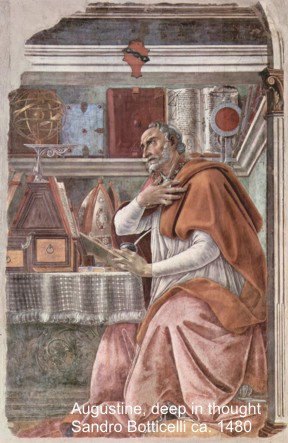 This Lent I’m reading the pious and and learned study of Archbishop Hilarion Alfeyev (Christ the Conqueror of Hell: The Descent into Hades from an Orthodox Perspective
This Lent I’m reading the pious and and learned study of Archbishop Hilarion Alfeyev (Christ the Conqueror of Hell: The Descent into Hades from an Orthodox Perspective
), and I have wanted to read an Eastern Orthodox study of the descent into hades and the conquering, or harrowing, of hell because that tradition has emphasized it so much.
The New Testament evidence, when read in its context, almost certainly indicates that Jesus “did” something between the Cross and the Ascension. The texts cited in our last post, in particular 1 Peter 3:18-25 and Acts 2, as well as the baptism for the dead in 1 Cor 15 and that enigmatic text in 1 Peter 4, indicate to me that we should be open to Jesus either gospeling the dead or announcing the good news to the dead after his death and before his ascension.
Do these texts indicate that death is final? One of the comments elucidated what I mean by “is death final?” when it suggested that the first death is not final but the second death is final. The question the Church has asked, and some are surprised by this, is whether that second death is final?
Does it matter to your way of doing theology that the early theologians all believed in a descent into hades?
Here’s a basic historical conclusion, and it is sketched in readable detail in Alfeyev’s book: into the 4th Century, Christians in both the West and the East clearly affirmed the descent into hell, the victory of Jesus over death, and either the liberation of saints from the realm of the dead or the total liberation of all humans from the power of death and hell.
Here are some details:
Irenaeus is typical in seeing both the descent and a release of the patriarchs, prophets and saints from the Old Testament period.
Hippolytus: John the Baptist also descended to preach to those in hades.
Clement of Alexandria: Christ descended and preached to the saints and to the Gentiles who lived outside the true faith. Hell for him was a place of reformation. Origen is like Clement, but emphasizes human choice.
Issue: how to define the various terms, but many saw places. That is, there’s Abraham’s bosom, and hell, and hades, and a prison.
Athanasius: leans, at times, toward the universal redemption or release from death. The famous text “Christus patiens,” attributed by some to Gregory Nazianzen, poetically sketches a universal release of the dead through the descent. Cyril of Alexandria follows this line of thinking; so does Maximus the Confessor.
Many are somewhat ambivalent or clearly believe Jesus’ release was only for the saints, and an example is St John Chrysostom. John Damascene emphasizes human choice by those in the realm of the dead and so not all are liberated. St Jerome is in this camp of saying at times that all are liberated but other times not all are liberated.
A decisive voice in this issue, especially in the West, was Augustine who believed in both a descent but not all in a “second chance”. For Augustine, death was final and the only ones in hades who were released were those who were predestined in God’s elective grace. What is interesting, though, is that Augustine was clearly battling many who did think Christ emptied hades and death and hell of all its inhabitants. Gregory the Great completed the Augustinian perspective.
Alfayev emphasizes that the Eastern fathers did not spell things out the way the Western fathers did.

